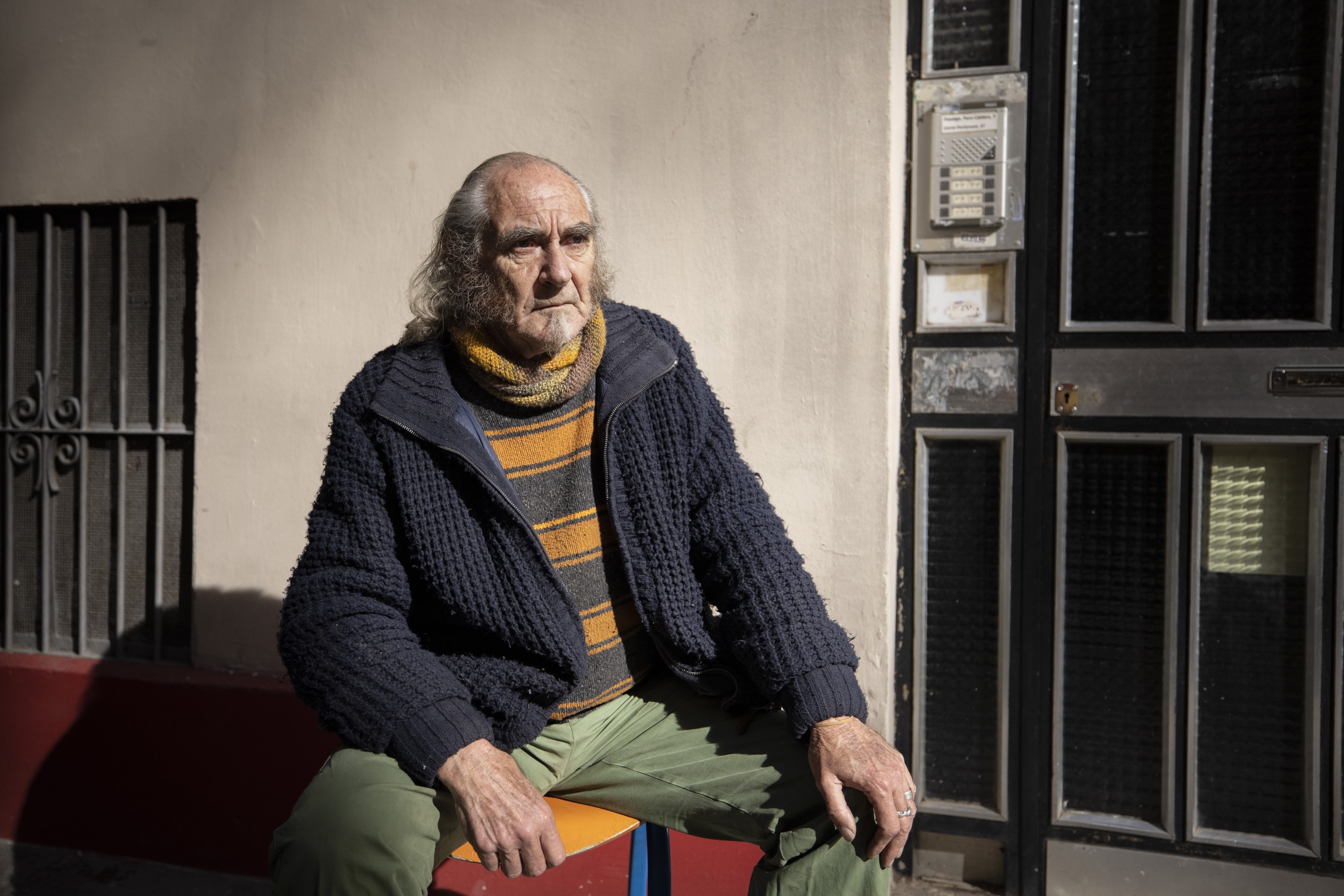Pau Riba has died this Sunday at the age of 73. The creator who defined himself as the "destroyer" of Catalan culture has lost his life due to cancer of the pancreas. Although he initially recovered from the disease, he then had to return to hospital at the beginning of 2022. Riba is known for being a transgressor, a trailblazer of the Catalan counterculture of the 1960s and 70s, and one of the legends of the original Zeleste music venue in Barcelona. Born in Palma de Mallorca, he became a musical icon across the Catalan speaking lands with Dioptria, a two-volume psychedelic album released in 1970 and 1971 (one disc each year) which has become one of the landmarks in Catalan music.
In an era when, in Catalonia as throughout the West, a counterculture burst forth and aspired to torpedo the most basic pillars of the society of the time, Riba took up this struggle for change and sought to contribute with his best artistic weapon: music. In 1975, the journalist Àngel Casas interviewed the singer-songwriter - then 26 years old - and asked him a question, with a response that would go down in history, perfectly summarizing the cultural and artistic concerns of young people at the time: "Do you think you help Catalan culture? " Pau Riba replied: "Yes, by destroying it".
Dioptria was a great success, and later the artist moved to the island of Formentera, where he mixed with hippie culture. Drugs became a part of his life, always full of experimentation, and Riba embraced LSD. His two children were born on the island: Cain and Pau, who also became musicians. His musical career did not stop, and he continued to release records, such as Jo, la dona i el gripau (Me, the Woman and the Toad). Later, however, Riba reinvented himself. The musician added the facets of designer, actor and television presenter, as well as working in the media.
Despite coming from a bourgeois family, Riba renounced those roots. "I'm still waiting to be paid a few duros so I can buy a guitar," the singer-songwriter said when asked if the 1960s Catalan folk movement Nova Cançó was an artistic development based on the Catalan bourgeoisie. Indeed, at the end of the 60s he was expelled from key group Els Setze Jutges, and created the Grup de Folk with Jaume Sisa, Jordi Batiste and Oriol Tramvia. Names forever associated with Barcelona's Calle Platería (as it was then called - now it's Carrer de l'Argenteria), the home in El Born of the legendary Sala Zeleste, concert venue par excellence.
Riba explained on his Facebook page a few months ago that he had been diagnosed with pancreatic cancer. In his text, he detailed that "after six months of excruciating pain and with the GP mistakenly pointing to psychosomatic pain, last month I finally managed to be hospitalized with a diagnosis of pancreatic cancer." The musician recounted that "it can't be removed, they say, for now and as it is, you're late."
"There are artists who change the world"
The Catalan cultural world has flooded with messages giving condolence to Riba's family and friends, as well as celebrating his artistic career, and Catalan politicians have also paid their respects. The new president of Òmnium Cultural, Xavier Antich, has stated that Riba belongs to that select group of artists who "change the world". "Catalan music without him would be something else," he posted on his Twitter account. He also stressed that Riba was "a reference point for the country of Catalonia and for his commitment to culture, for the literary power of his songs and the creative universe he crafted which have accompanied many generations."

In a similar vein, Catalan president Pere Aragonès described Riba as an "irreverent, generous, creative and authentic poet". He added that he is "an icon of the music and culture of our country that leaves an indelible mark." The speaker of parliament, Laura Borràs, wished "good journey and good rest" to the singer-songwriter, as well as recalling one of Riba's most famous lyrics, from "Nina de miraguano":
...que si te'n vas, sentis a dir-te: 'quan me mori enyoraré enyorar-te'
("...and if you go, hear yourself say: "When I die I will miss missing you")
Laura Borràs added: "We will miss missing you, dear Pau".



